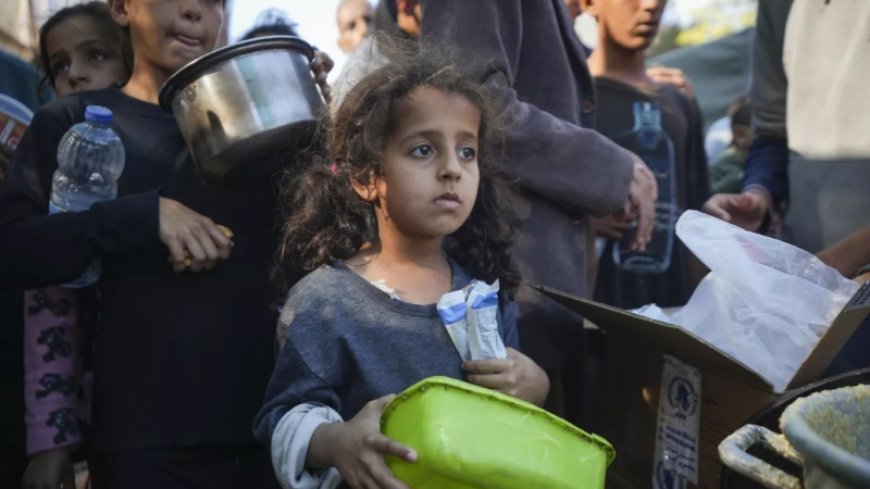Western Apathy and the Looming Hunger Crisis in Gaza
The Gaza Strip is fast approaching an unheard-of humanitarian catastrophe as world attention wanes and the unrelenting cycle of violence persists. Recently, the United Nations Food and Agriculture Organisation (FAO) issued a sobering warning: over 130,000 people in Gaza already suffer with extreme hunger. This terrible statistic shows about 6% of the population—people who lack even the minimum needed to survive. Worse, if the world community stays apathetic, the FAO projects that this figure could triple in the next months.

The Gaza Strip is fast approaching an unheard-of humanitarian catastrophe as world attention wanes and the unrelenting cycle of violence persists. Recently, the United Nations Food and Agriculture Organisation (FAO) issued a sobering warning: over 130,000 people in Gaza already suffer with extreme hunger. This terrible statistic shows about 6% of the population—people who lack even the minimum needed to survive. Worse, if the world community stays apathetic, the FAO projects that this figure could triple in the next months.
Gaza has been a furnace of political and humanitarian crises for decades, sustained by an apparently never-ending embargo, internal governance challenges, and frequent armed escalations. The most recent numbers highlight how firmly ingrained this misery is, in spite of many pleas for intervention. Food shortage in Gaza is not a recent occurrence; rather, it is a deeply ingrained dilemma brought on by political lethargy, especially from Western nations, systematic neglect, and economic strangulation brought on by siege.
The political posture of the West toward Gaza has long been distinguished by a disturbing paradox: a language of humanitarian concern mixed with policies meant to uphold the status quo. Western governments have backed laws allowing the blockade of Gaza under the pretense of security for years. Still, this embargo has wrecked the local economy, choked trade, and left millions reliant on humanitarian relief. Nowadays, more than half of Gaza's population lives in poverty, with unemployment rates among the highest globally. These are personal lives teetering on the brink, not simply figures.
Given the Strip depends on aid, the FAO's warning is especially striking. Restrictions and financing shortages have made it difficult for humanitarian organizations to reach the area. Families that formerly depended on sporadic handouts so find themselves without everything. International donors, many of which are Western governments, still fall short of their pledges in meanwhile.
Complicating this situation is the West's reluctance to confront the underlying causes of Gaza's misery. With peace negotiations all but abandoned, the more general Israeli-Palestinian conflict remains unresolved. Western nations sometimes resort to a policy of selective engagement—condemning violence while neglecting the structural problems that generate it—instead of encouraging communication or addressing the deep-seated frustrations driving this cycle of hopelessness. Along with eroding confidence, this strategy prolongs a humanitarian disaster that might have been avoided.
The quiet from Western cities is intolerable. Leaders advocate human rights in international venues, but their silence over Gaza says volumes. The moral case is obvious: no population should suffer political consequences including hunger. And yet here we are, with the FAO blaring alarms unlikely to be able to cut through the din of geopolitical priorities and selective indignation.
Western nations have to go beyond platitudes of concern if we are to stop this cycle. They have to support laws that deal with the fundamental causes of Gaza's predicament, including easing restrictions on people and commodities movement, guaranteeing civilian protection, and pledging long-term infrastructure and economic development in Gaza.
The inhabitants of Gaza are left to question whether their life counts outside of international conferences and press releases as the globe observes from a comfortable distance. The solution resides in Western countries' readiness to face their own culpability in extending Gaza's suffering and hence act in line with the ideals they profess to espouse.













































